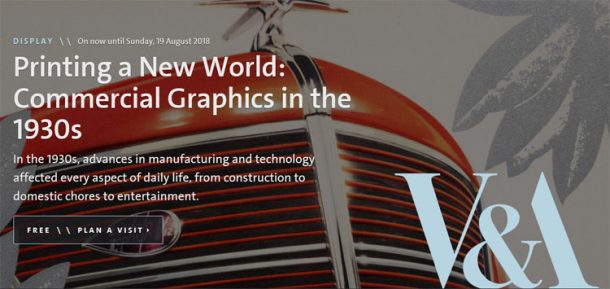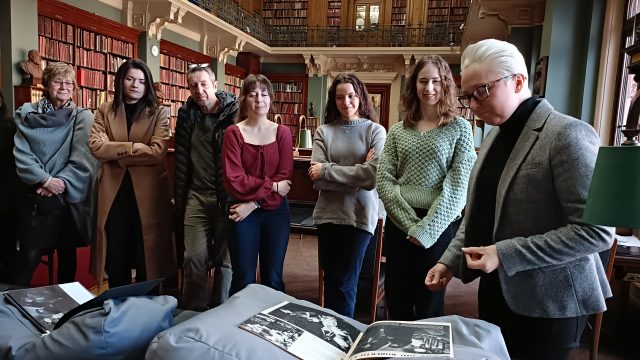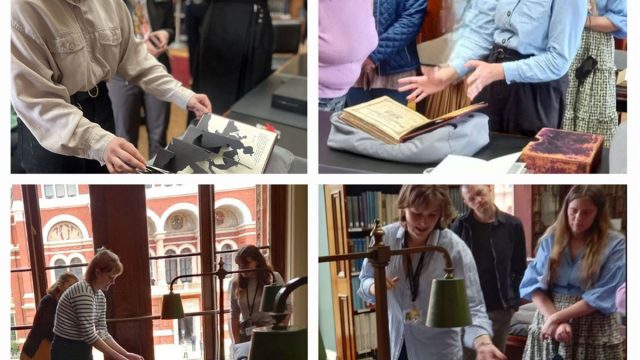What is Jobbing Printing and what can it teach us about design and everyday life?
A new display in Gallery 102, ‘Printing a Modern World. Commercial graphics of the 1930s’ (3 Feb to 19 August 2018), highlights some eye-catching examples of commercial printing ‘jobbing work’ from European and American designers and companies – all from the National Art Library’s (NAL) Jobbing Printing Collection.
Jobbing Printing is a trade term that describes small printing jobs that are not books, and includes trade literature, leaflets, catalogues, magazine covers, labels, advertisement proofs, and other printed ephemera. Before the age of the internet and television adverts, material like this was the main way that companies would promote their products, explain their use and capture the public’s imagination and interest.
The Jobbing Printing Collection was begun in 1936 when Philip James, Deputy Keeper of the National Art Library, solicited samples of work from significant companies and designers throughout Europe and America to create an “open reference collection [representing] the trend of typographic design, both in [Britain] and abroad” to provide students with examples of commercial art showing different methods, styles and stages in the printing process. This was the beginning of graphic design and advertising as we know it now. In particular James was interested in work from Europe that showed the influence of avant-garde movements such as Constructivism, Surrealism, and Vorticism on graphic design. Here are some visually appealing examples from the collection included in the new display.

This leaflet for Birds Eye Frosted Foods uses bright colours and a simple diagonal layout to introduce a new product – flash-frozen food. The words used to describe the ‘frosted’ (which was deemed a fresher, cleaner word than ‘frozen’) fruit and vegetables – purity, convenience, economy – are reassuring and enticing.

This French brochure for Lincoln Zephyr cars was designed by innovative, internationally-famous printers Draeger Freres. Draeger were a pioneer of advertising who combined their expertise in printing with input from famous artists, designers and writers to produce high-end commercial printing for luxury firms. As well as featuring beautiful images of the cars in an attractive metallic ink, it also has the practical elements of technical information such as engine capacity.

This booklet promotes flats for modern living, replacing the dark and dirty houses condemned by the 1930s Slum Clearance acts. The architectural axonometric plan on the cover of this booklet shows a new flat with steel components (including the skirting boards, picture rails, window and door frames) marked in red.

During the 1930s building boom, this booklet, aimed at architects and builders, promoted the potential uses of zinc. The cover features a strikingly modern collage of a photographic image superimposed on a bold blue background. The booklet contains an actual sample of zinc, bound in with the pages with the latest innovative spiral binding.
The variety of works in the JP collection is remarkable, as we are discovering as we explore this under-researched collection. The JP initiative captured a complex and exciting moment in the evolution of commercial art in Britain, as you can see for yourself in gallery 102 until August 2018.




Very interesting information, thanks you very much for sharing this.
Extemely interesting to find out what Jobbing Printing actually is. I particularly like the plan for the 1930’s flat on the cover of ‘Sheet Steel for Better Homes’.